The reason for this continued obsession with ancient Greece is that we believe that our modern Western civilization and culture stems directly from the Greek world. We believe that Western civilization began, had its origins, its birth, in classical Greece, that this kernel of civilization was transmitted through time, through Rome, through medieval Europe, through the Renaissance and the Enlightenment and ultimately to the world of the modern West. This imagined genealogy of Western civilization begins in ancient Greece and ends with us, the modern West, today. I think this is why we are ultimately still so interested in the classical world.
The origin myth of the modern West
Professor of Greek Archeology
- The Western origin story that begins in classical Greece oversimplifies history and inflates a singular inheritance.
- Ancient Greece spanned Europe, Asia and Africa, and its legacy dispersed across Byzantium, medieval Islam, Central Asia and beyond.
- Western Europe’s embrace of Greek heritage intensified after the Renaissance amid Habsburg-Ottoman rivalry, hardening Europe versus Asia boundaries and feeding early racial ideologies.
- The origin myth of the modern West no longer serves us in the present. A better origin myth centers on diversity, cultural interconnection and active choice rather than linear descent.
Obsessed with ancient Greece
We in the modern West still look back to ancient Greece as our imagined origin. We tend to think of the roots of Western culture, Western civilization reaching back through time and ultimately being located in the ancient world of classical Greece. We still make movies and TV programs about the Greek world. We still write bestselling popular novels set in the ancient Greek world or retell the ancient Greek myths. We are still obsessed with ancient Greece.
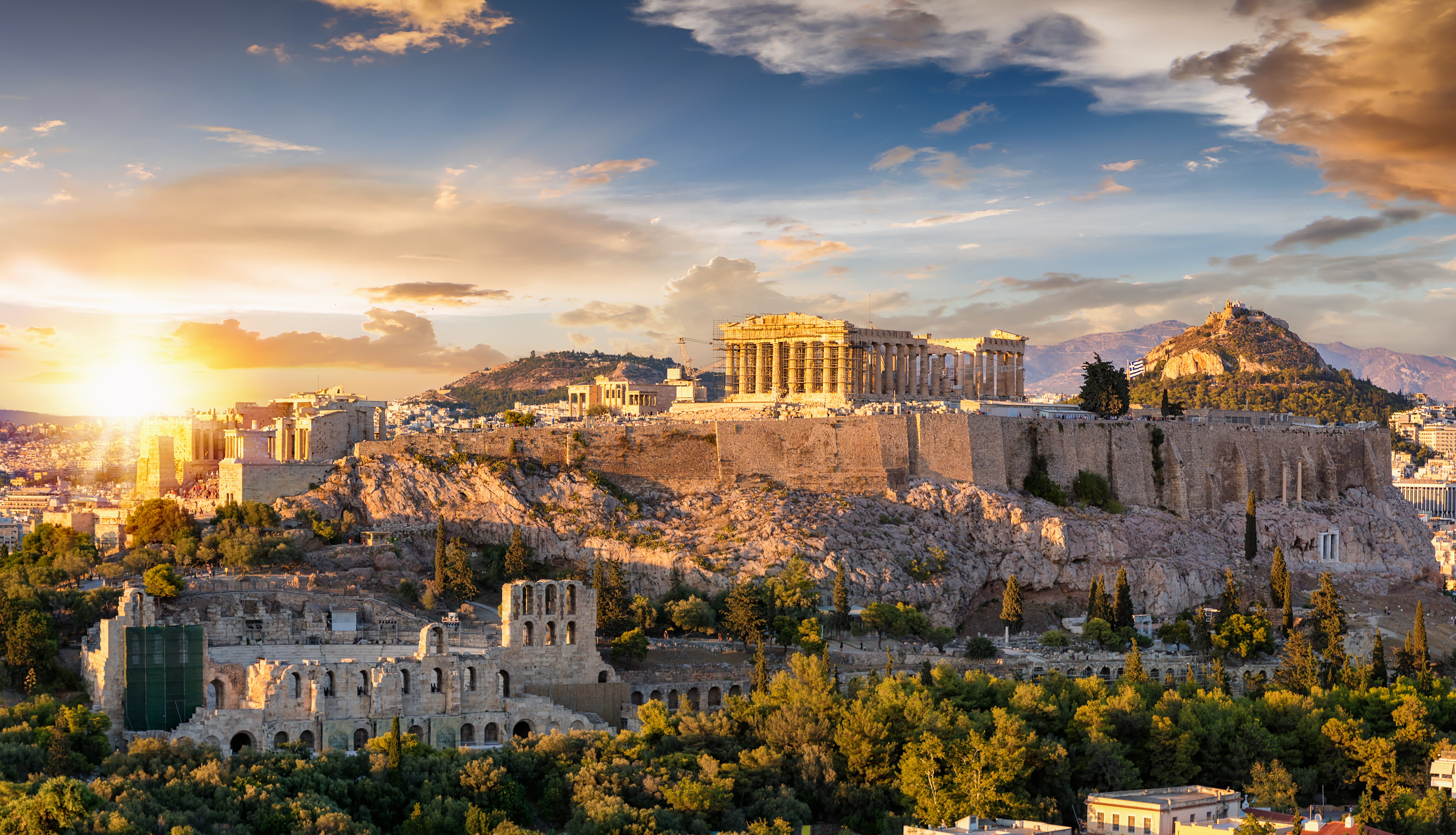 © Sven Hansche via Shutterstock
© Sven Hansche via Shutterstock
Across three continents
As a researcher specializing in the study of the ancient Greek world, it is very clear that there are some things wrong with this picture. First of all, the ancient Greek world is nothing like our vision of the modern West.
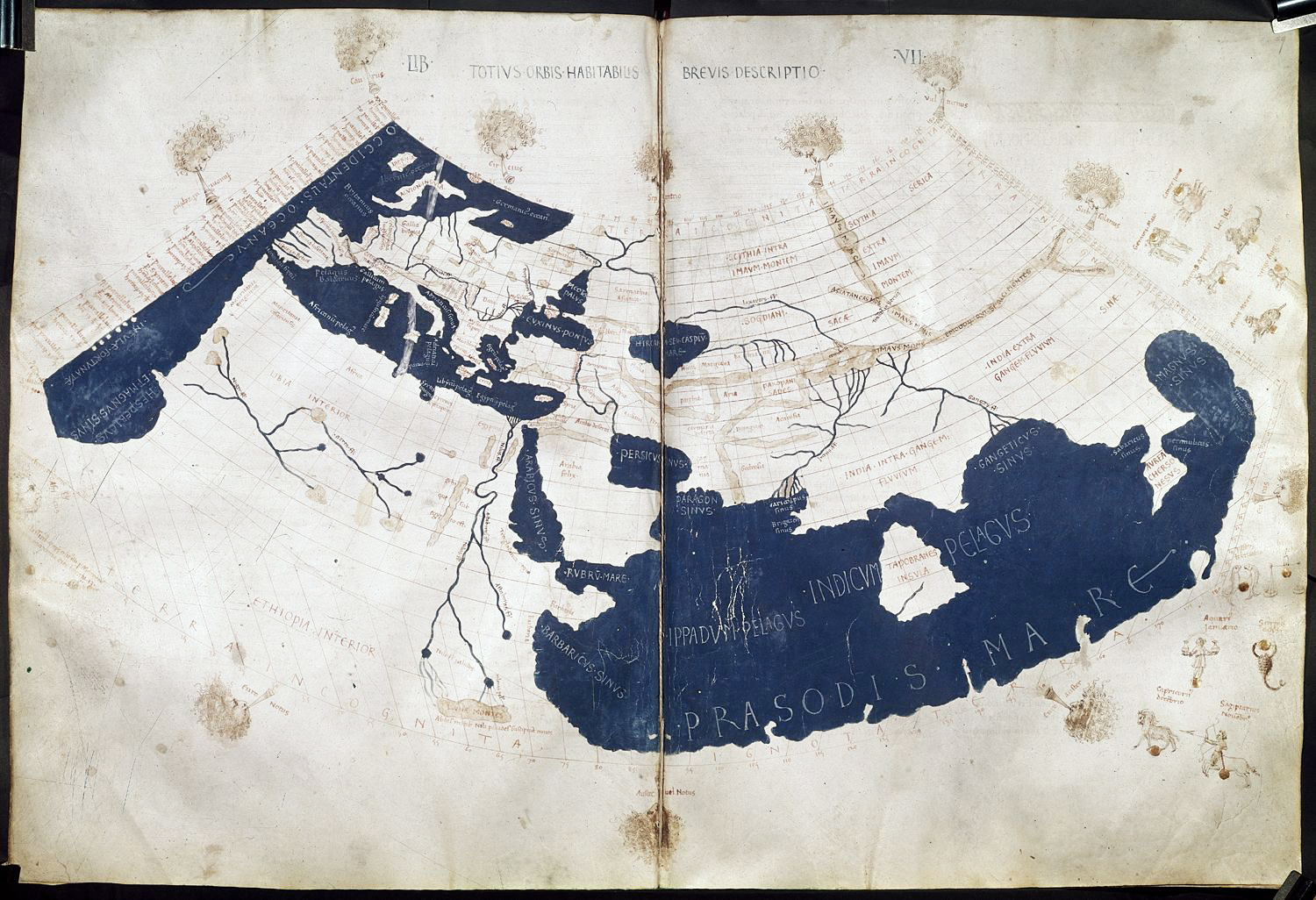 Ptolemy's Geography © Francesco di Antonio del Chierico via Wikimedia
Ptolemy's Geography © Francesco di Antonio del Chierico via Wikimedia
The ancient Greek world was spread across three different continents. It was partly located in Europe, but it was also partly located in Africa. For the most part, much of the ancient Greek world was located in the modern continent of Asia. When we think of the modern West, we often think of it as a European and North American geographical construct. Yet, the ancient Greek world was much more Asian than it was European, and it was certainly as African as it was European. This is quite different from the expectations that we might have.
A distributed inheritance
Another problem is the assumption that we in the modern West are the privileged heirs of classical antiquity, that we have received a pristine inheritance, a cultural inheritance, from the Greeks through the Romans, and that this is the cornerstone of our own civilization today.
When we look at what happened in antiquity, the heirs of antiquity are not exclusively or even predominantly in Europe. What we find is that the inheritance of classical antiquity is much more distributed than we might initially assume. Greek culture and civilization have left their imprint on many different societies around the world, not just Western culture and society.
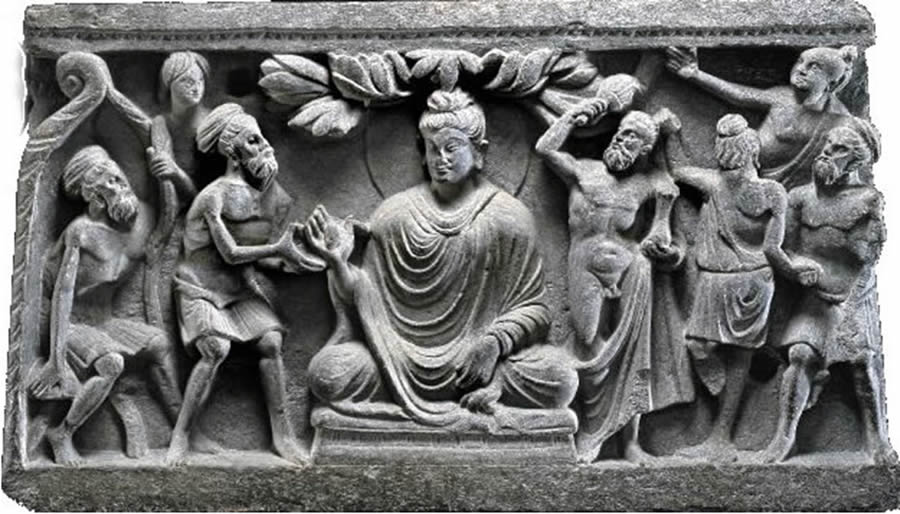 The Buddha performing a miracle. One of his attendants, Vajrapani, is often depicted with iconography similar to that of the Greek hero Heracles (to the right of Buddha). Relief from Gandhara, Pakistan © The Trustees of the British Museum
The Buddha performing a miracle. One of his attendants, Vajrapani, is often depicted with iconography similar to that of the Greek hero Heracles (to the right of Buddha). Relief from Gandhara, Pakistan © The Trustees of the British Museum
The heritage of ancient Greek culture can be clearly seen in the Byzantine and Eastern Orthodox tradition. It is also very evident in the traditions of medieval Islam and especially the scientific traditions that emerged out of that.
Elements of ancient Greek culture and civilization also persisted and survived in Central Asia, as far east as modern-day Pakistan and Afghanistan. If we map the heirs of ancient Greek culture and civilization, we find that they are not exclusively located in Europe or the modern West at all. In fact, we have Asian, African, European and North American heirs of classical civilization.
Messy civilizational lines
The process of claiming Greek inheritance and the legacy of the classical past is something that happened very gradually over the period of several centuries.
In the early medieval period, much of Central and Western Europe is actually seeking to distance itself from Greek antiquity. This is because of the close association of the classical Greek past with the Byzantine present and the traditions of Eastern Christianity that were associated with them. In the early medieval period, right up until the time of the Crusades, the opposition is very much between the Latin West and the Greek East. Therefore Greek antiquity is almost tainted by association.
It is not until later, during the Renaissance, that elements of Greek antiquity become more integrated with that Central and Western European tradition. This happens after the fall of the Byzantine Empire and after the rise of the Ottoman Turkish Empire, and this is certainly partly a response to that. The civilizational lines are no longer between the Latin West and the Greek East, but between the Greco-Latin West and the Islamic East.
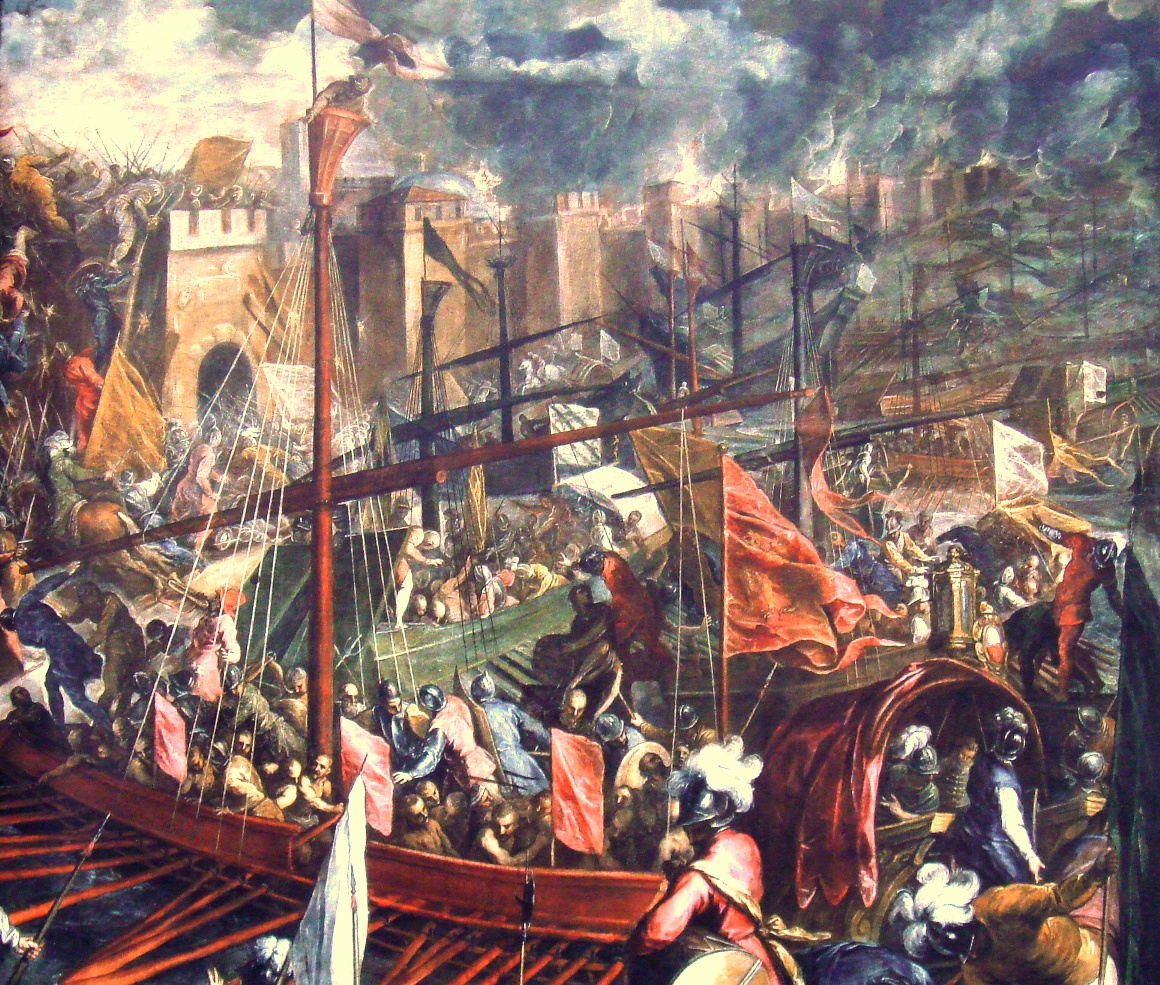 The Taking of Constantinople, 1204 © Palma Le Jeune via Wikimedia
The Taking of Constantinople, 1204 © Palma Le Jeune via Wikimedia
However, even these civilizational lines are quite complex and messy for several centuries. It is not really until the turn of the 17th century that we start to find them really crystallizing. It is at this point that we have a rhetoric of a unified Christendom, which brings together the various traditions of Western Latin Christianity combining Catholicism and various forms of Protestantism in opposition to the Ottoman Muslim Turkish world. This really emerges out of the rivalry between the Ottoman Empire and the various Habsburg realms.
Worlds further apart
The mid- to late 16th century is really a period of intense rivalry between the Ottoman Empire and the various Habsburg realms, with several major battles, both land and sea battles, between these two global empires. In this context, we have a rhetoric of increasing opposition between Christendom and Islam and a rhetoric that also projects that clash of civilizations narrative back into history and into antiquity.
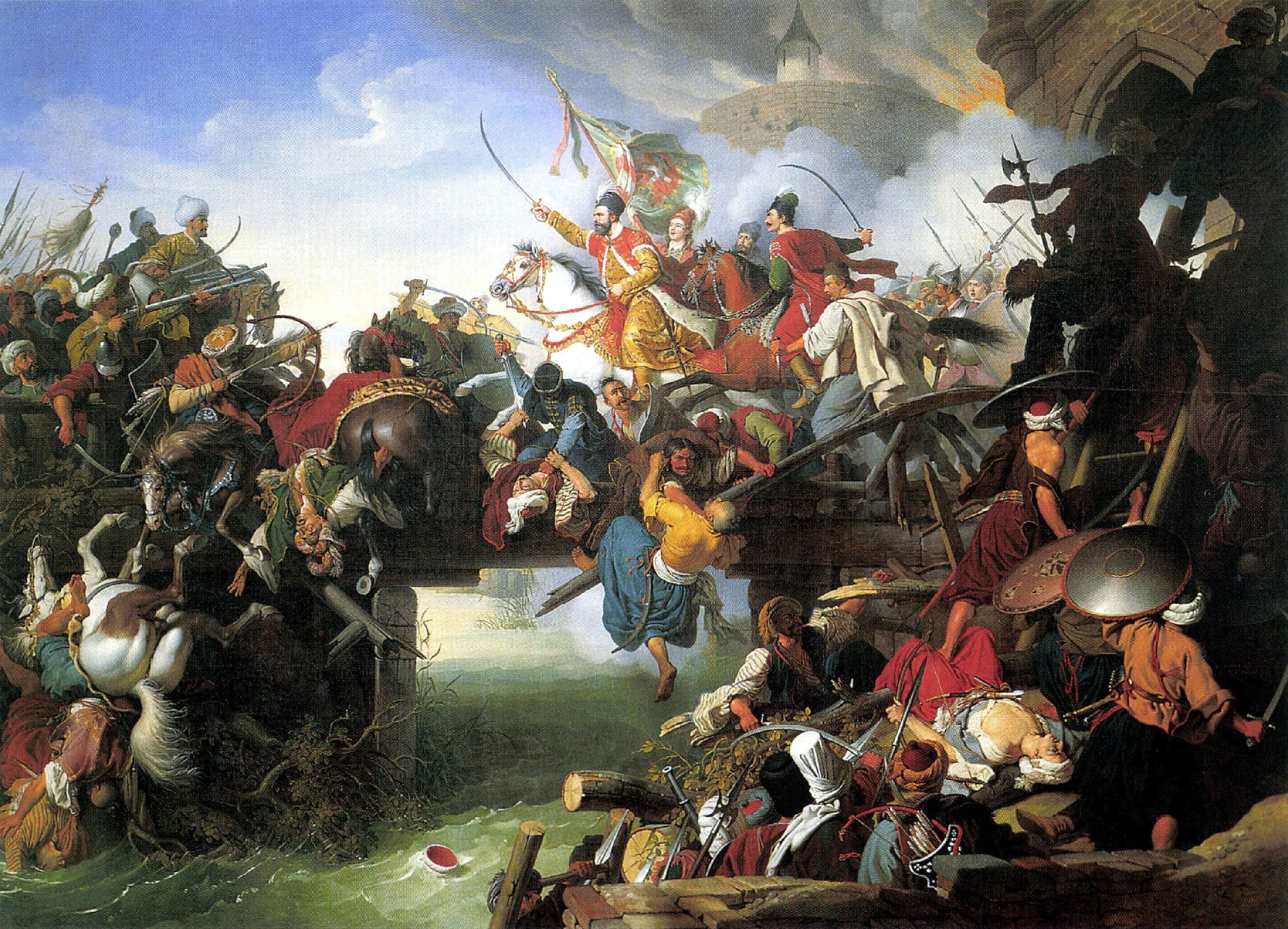 Zrínyi's Charge from the Fortress of Szigetvár © Johann Peter Krafft, Hungarian National Gallery via Wikimedia
Zrínyi's Charge from the Fortress of Szigetvár © Johann Peter Krafft, Hungarian National Gallery via Wikimedia
In the context of this rhetoric, we begin to hear of a unified line of Europe on the one side, which starts with the Habsburgs and stretches back through Rome and Greece, because these are European ancient powers. That becomes more and more distinct from the Ottoman line, which stretches back through an Asian antiquity, through the Trojans and back to the Persians and the Medes. So we have this growing sense of distinction between Europe and Asia, Christendom and Islam, not just in the present of the late 16th century, but also in the past as well. The classical worlds of antiquity become separated into European and Asian antiquity, just as the contemporary worlds of Europe and Asia were also becoming further and further apart.
Ideological distinctions
Layered onto this, we have the expansion of global European empires at precisely the same time. This leads to a racial element being incorporated into the mix. The spread of European empires over Asian and African territories brought about an ideological need to distinguish Europeans from Asians and Africans ever more sharply.
This distinction was made not just in the imperial present, but also in the imagined past. We have an increasing sense of a European antiquity, an exclusively European antiquity, which becomes an exclusively white European antiquity, which is linked to Rome and then Greece. This is set in greater and greater opposition to an exclusively non-European, Asian and African non-white antiquity, which becomes linked then to the ancient worlds of the Carthaginians, the Phoenicians, the Trojans, the Persians and the Egyptians, which begin to occupy a very different conceptual space in antiquity as well as in modernity. This is really the birth of the idea of the classical world as something which is distinct and separate from the rest of antiquity.
Ancient Greece in modern culture
I think in the last five years we have seen a real revival of this rhetoric of Western civilization and the purity of Western civilization going back to Rome and to Greece, in particular. We have heard more about this in public discourse on the lips of our politicians, both in Europe and North America. This has really led to a revival of a certain vision of classical antiquity being our Western heritage, our white Western heritage.

Apollo, Poetry and Music roof sculpture - Opera Garnier © Icestylecg via Shutterstock
There's also been a real attempt to decolonize classical antiquity as well, to try and understand the Asian and African elements of the Greco-Roman world and to write them back into history as well
New narratives about antiquity
There are other claims being made on Greek antiquity at the moment. There's a move to understand ancient cultures and civilizations as ever present and ongoing in the modern world as well. This is driven to a large extent by the civilizational narrative espoused in China.
 Great Wall of China at Sunrise © ABCDstock via Shutterstock
Great Wall of China at Sunrise © ABCDstock via Shutterstock
There is a completely different civilizational model there, whereby ancient civilizations can persist and continue into the modern world, with ancient China not being the ancestor of modern China but simply continuing through time and being one and the same entity: a transhistorical, unchanging civilizational entity which persists through human history. Under this conception, the ancient Greek world has never gone. It has never left us. It has merely transformed, changed shape and is still present with us today in the modern nation state of Greece.
In this civilizational model, then, we see several parallel civilizations persisting through time from antiquity to the present day: Greece being one, China being another, other cultures — such as Mesopotamia through to modern Iraq or ancient Persia through to modern Iran — being other parallel, ancient and enduring civilizations. There are different ways of constructing these civilizational narratives and different ways of imagining the relationship between the modern world and the ancient one.
A new foundation myth
I wrote in my book that ancient Greece, as the origin myth of the modern West, is an origin myth which no longer serves us in the present.
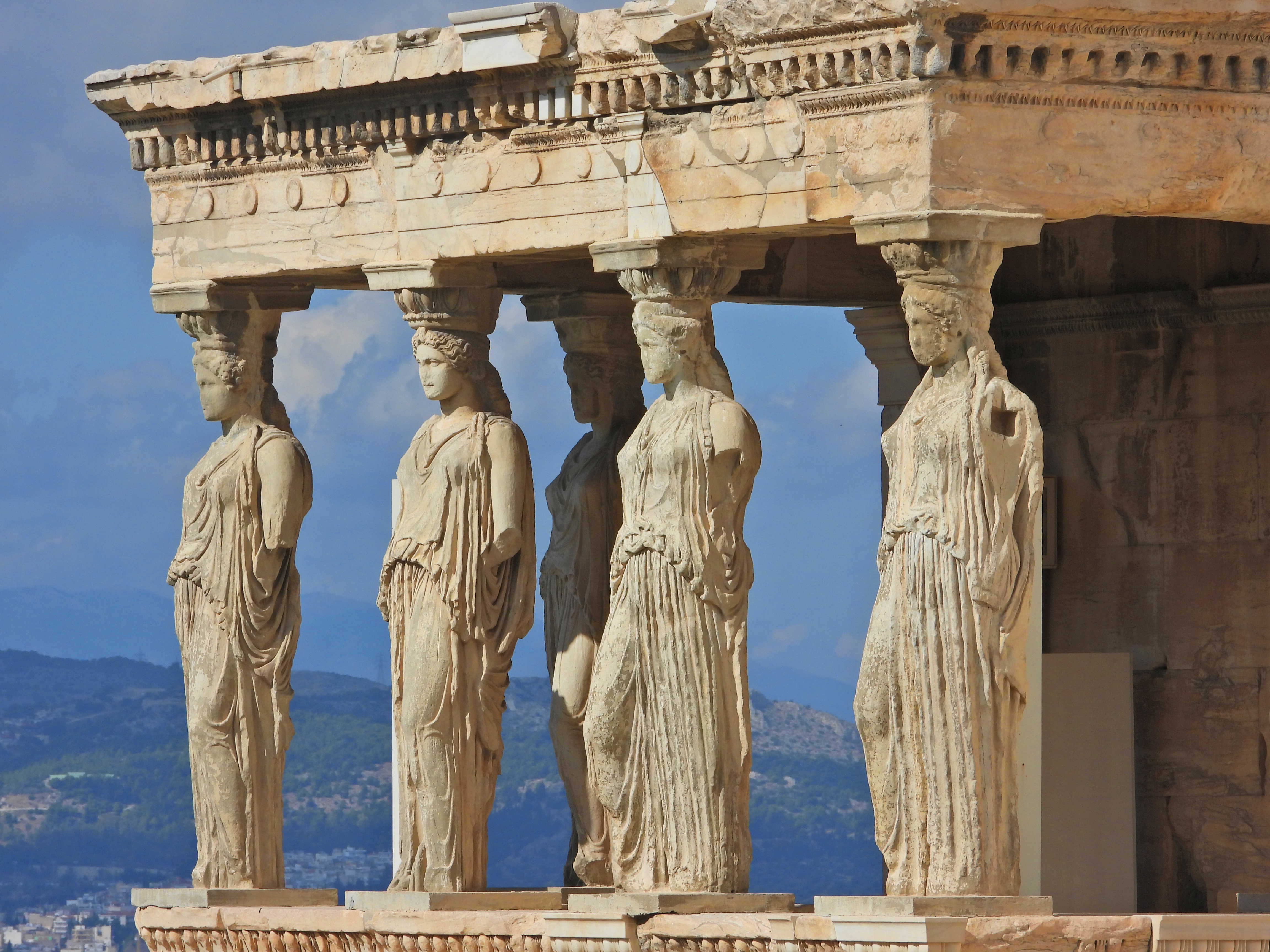 Porch of Caryatids, Acropolis hill © Aerial-motion via Shutterstock
Porch of Caryatids, Acropolis hill © Aerial-motion via Shutterstock
We know now that we are not descended in any straightforward or linear way from the ancient Greeks, neither biologically nor culturally nor civilizationally — but actually, that does not matter, and it should not matter. I think in the modern West we need a new origin myth which allows for rupture, which allows for choice, which allows for diversity. I think the modern West can still look to ancient Greece for inspiration and for its roots, but we need to look back to an ancient Greek world that was diverse, that was geographically dispersed, that was comprised of many interacting individual groups that came together in a form of cultural convergence.
If we see the ancient Greek world as it really was, a world that was forged through cultural interconnections, through cultural convergence, through diverse people coming together, this actually is a foundation myth which I think we can all draw inspiration from today. This would be an origin myth which is much more suited to the modern West as it is now.
Choice and inspiration
We need to tackle the misconception that the West is descended directly from ancient Greece. We are not descended from the Greeks passively. Instead, if we want to, we can take inspiration from the ancient Greek world — but if we are going to do it, we are going to choose it. We are going to do it actively. Our relationship to the ancient Greek world is one of choice and inspiration. It is not one of descent and inheritance.
Editor’s note: This article has been faithfully transcribed from the original interview filmed with the author, and carefully edited and proofread. Edit date: 2025
Discover more about
the origin myth of the West
Mac Sweeney, N. (2023). The West: A new history of an old idea. WH Allen.
Mac Sweeney, N. (2018). Troy: Myth, City, Icon. Bloomsbury Academic.
Mac Sweeney, N. (2019). Claiming the Classical: The Greco-Roman World in Contemporary Political Discourse. Council of University Classics Departments Bulletin.
Mac Sweeney, N. (2020). Herodotus and the 1919-1922 Greco-Turkish War. In T. Harrison, & J. Skinner (Eds.), Herodotus in the Long Nineteenth Century (pp. 224-243), Cambridge University Press.